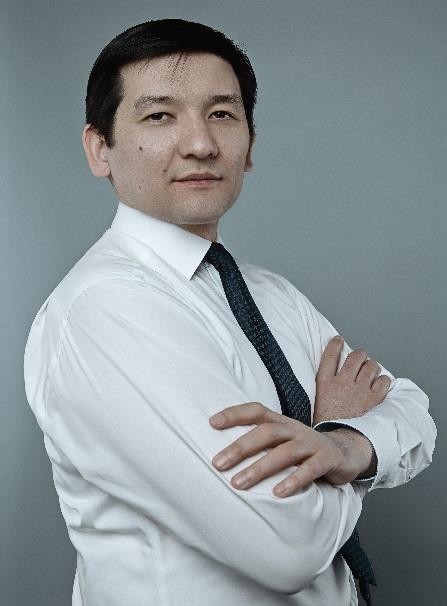December 30, 2020
Automotive industry in the Republic of Kazakhstan
- The history of the development of the automotive industry: a brief overview
- Export market
- State support measures
- A course towards environmentally friendly car production
- Prospects for the development of the automotive industry
Today, the Kazakh automotive industry is included in the list of priority areas of industrial development of the non-resource sector. At the end of 2019, the share of the automotive industry in mechanical engineering of the Republic of Kazakhstan amounted to 26%, over 50 thousand units of equipment were produced, about 2.7 thousand cars were exported[1].
1. The history of the development of the automotive industry: a brief overview
The automotive industry of Kazakhstan began with the release of the first NIVA car in 2003. The catalog of domestic automotive products was made up of VAZ cars.
In 2010, the first agreements were signed with enterprises for the industrial assembly of motor vehicles. However, this measure did not show its high efficiency, but became a “rebound point” for the government to take specific measures to stimulate the automotive industry. These measures include: tax preferences, the introduction of a utilization fee, the introduction of concessional lending and leasing programs, support for the export of domestic products, as well as the launch of a program of industrial cooperation.
Measures to stimulate the automotive industry led to the first successful results in the form of attracting a major transnational investor in the person of SMS-JAC Motors, a strategic partner of “SaryarkaAvtoProm” LLP. Further, the largest players began to be attracted to the production of commercial vehicles. For example, opening of production facilities for Daewoo, Hyundai, IVECO, ANKAI, KamAZ, etc. As a consequence, there has been an increase to this day: healthy competition and the number of automakers.
Thus, the automotive industry has moved from the production of components and spare parts to the production of such final products as: diesel locomotives, electric locomotives, passenger and freight cars, trucks and cars, buses, batteries, wheeled tractors, combine harvesters, pipeline fittings, cable wiring products, LED lamps, pumping equipment, passenger elevators[2].
2. Export market
The state continues to support an increase in the export component of the automotive industry. Thus, the state takes a number of the following measures:
- export financing of automobile enterprises to stimulate the production of environmentally friendly vehicles;
- financial support in the form of reimbursement of part of the costs for: a) transportation of finished products within Kazakhstan; b) certification of products in export markets.
Enterprises that export products must:
- increase the number of technological operations at enterprises;
- use domestic components and materials;
- carry out large-scale production.
Results of the application of measures of state support for exports:
– an increase in exports by 10 times (compared to 2018);
– export of 2 629 cars (at the end of 2019)[3].
3. State support measures
The state continues to apply measures to stimulate the automotive industry.
In his Address to the people of Kazakhstan, the President set a specific task to provide Kazakhstan’s machine-building enterprises with high-quality and affordable raw materials. The reason for this was that today, often, domestic machine builders purchase raw materials from abroad. The implementation of the task should be accompanied by the construction of factories that will meet the needs of 700-800 thousand tons of metal annually[4].
State support measures are regulated in the Roadmap for the development of mechanical engineering for 2019-2024, which includes:
- tax preferences;
- introduction of concessional lending and leasing programs;
- support for the export of products;
- financial and raw material support;
- provision of qualified personnel.
Let’s take a closer look at the content of the Roadmap for the development of mechanical engineering for 2019-2024.
One of the important results of the implementation of this roadmap is:
- i) development of the Law of the Republic of Kazakhstan “On Industrial Policy”;
- ii) the creation of an Industrial Development Fund.
A close cooperation relationship in the development of the domestic automotive industry has been established with the Russian Federation. In this connection, the states adopted the Joint Action Program (04/03/2019). The program provides for cooperation in:
– implementation of projects for the construction of factories for the production of gearboxes for the main drives of the driving axles of trucks, a foundry and a research and development engineering center (PJSC KAMAZ, PJSC AVTOVAZ, LLC Hyundai Motor Manufacturing RUS);
– construction of the Hyundai Trans Kazakhstan LLP plant for the production of Hyundai passenger cars in Almaty. It is planned to produce 30,000 units per year (stage I) and 45,000 units per year (stage II);
– an increase in production volumes, an expansion of the range of cars and the production of CMC – JAC Motors auto components on the territory of SaryarkaAvtoProm LLP. Also, cooperation with this company involves the construction of factories for the production of tires and engines.
Another important measure of state support is the adoption by the ministers of health and infrastructure development of the Republic of Kazakhstan of the Roadmap for the renewal of sanitary transport in the Republic of Kazakhstan, containing the renewal of sanitary transport through leasing financing.
Lease financing conditions:
- leasing term up to 5 years;
- the rate of remuneration is not more than 7% for domestic producers;
- no requirement to make an advance payment;
- grace period up to 12 months.
Thus, in 2019, 10 billion tenge was allocated for 800 ambulances and 18 mobile medical complexes in 2019-2020[5].
The next measure of state support is the introduction of a program of preferential car loans and preferential leasing. As a result of the implementation of this program, DBK-Leasing JSC allocated 50 billion tenge. Also, since October 2019, through DBK-Leasing JSC, the National Bank’s concessional car loan program was launched with the allocation of 100 billion tenge over 5 years.
The state carries out additional stimulation of the development of the automotive industry (buses) by launching a program for the sale of buses of Kazakhstan production in leasing. 33.5 billion tenge was allocated from the republican budget of DBK-Leasing JSC and the supply of 1,550 buses was financed.
4. A course towards environmentally friendly car production
One of the features of the Kazakh automotive industry is the choice of a course on creating eco-transport. Thus, domestic electric buses were produced and launched. In addition, the development of the automotive industry is facilitated by: reduction of fuel consumption through the use of new types of fuel; the use of new construction materials; diversification of model lines in terms of quality, cost and goals.
Since 2018, there has been a complete transition of domestic automakers to the fifth environmental class. This transition is helping to create a favorable environment for producers. In particular, according to the terms of agreements on industrial assembly, manufacturers have the right to receive funds to reimburse the costs of production processes for: a) the production of environmentally friendly vehicles (if they comply with the environmental class Euro-4 and higher; with electric motors); and b) meeting the requirements for a phased increase in localization.
5. Prospects for the development of the automotive industry
The dynamic development of the automotive industry is accompanied by the receipt of measures of state support for this industry, due to the high importance of the industry.
According to the results of 10 months of 2020, the growth in the volume of production of the domestic engineering industry amounted to 17%, in monetary terms, 1.4 trillion tenge. Between January and October 2020, an increase in production occurred in the following mechanical engineering sectors:
- автомобилестроение на 54%;
- railway engineering by 1.9 times;
- agricultural engineering (tractors, reapers, combines) by 44%;
- electrical engineering by 3%[6].
Planned projects for the development of the automotive industry:
i) 2020 – production of over 10 new car models is planned. In the short term, the total volume of auto industry production is planned to be increased to 100 thousand cars, of which 10-15 thousand – for export to Russia, Kyrgyzstan, Uzbekistan, Tajikistan, Belarus, Azerbaijan and other countries;
ii) in the city of Almaty it is planned to open a Hyundai plant with a capacity of 45 thousand units per year. The plant was opened on the territory of the Industrial Zone. The volume of investments in the construction of the new plant amounted to 25 billion tenge. The design capacity is 30,000 units per year. The second stage and the production of the first car, produced with technological operations for welding and painting the body, is planned for September 2020. The enterprise will create up to 700 new manufacturing jobs. Building a dealer network in the regions of Kazakhstan will have a positive effect on the development of SMEs;
iii) at the end of January 2020, in the presence of the Prime Minister of the Republic of Kazakhstan A. Mamin, agreements on cooperation were signed between JSC Uzavtosanoat and JSC Export Insurance Company KazakhExport, as well as an agreement on the supply of vehicle sets between SaryarkaAvtoProm LLP and JSC “UzAuto Motors”[7].
When implementing further measures to support enterprises, implementation will be carried out in the following areas:
- deepening localization by tightening counter-obligations of manufacturers;
- creation of foundries for the production of blanks and providing a high-quality raw material base;
- improving the system of government procurement of engineering products by developing a system of long-term “off-take” contracts;
- increasing the volume of financing for the program of concessional lending and leasing of engineering products;
- increase in the share of costs reimbursed by the state when promoting the export of finished goods by 80%[8].
Thus, in the future, the automotive industry plans to:
– continue to work to increase the share of local content by switching to new agreements on the industrial assembly of vehicles from the beginning of 2021;
– to develop industrial cooperation with partners of Kazakh car manufacturers, including the production of auto components;
– continue mastering the production of electric vehicles [9].
[1] http://government.kz/ru/news/reviews/avtomobilnaya-promyshlennost-kazahstana-kak-razvivaetsya-i-kakovy-perspektivy
[2] http://government.kz/ru/news/interviews/po-itogam-10-mesyacev-t-g-obem-proizvodstva-otechestvennogo-mashinostroeniya-vyros-na-17-intervyu-s-m-pshembaevym-10115818
[3] Там же
[4] http://government.kz/ru/news/interviews/po-itogam-10-mesyacev-t-g-obem-proizvodstva-otechestvennogo-mashinostroeniya-vyros-na-17-intervyu-s-m-pshembaevym-10115818
[5] http://government.kz/ru/news/reviews/avtomobilnaya-promyshlennost-kazahstana-kak-razvivaetsya-i-kakovy-perspektivy
[6] http://government.kz/ru/news/interviews/po-itogam-10-mesyacev-t-g-obem-proizvodstva-otechestvennogo-mashinostroeniya-vyros-na-17-intervyu-s-m-pshembaevym-10115818
[7] http://government.kz/ru/news/reviews/avtomobilnaya-promyshlennost-kazahstana-kak-razvivaetsya-i-kakovy-perspektivy
[8] http://government.kz/ru/news/interviews/po-itogam-10-mesyacev-t-g-obem-proizvodstva-otechestvennogo-mashinostroeniya-vyros-na-17-intervyu-s-m-pshembaevym-10115818
[9] http://government.kz/ru/news/reviews/avtomobilnaya-promyshlennost-kazahstana-kak-razvivaetsya-i-kakovy-perspektivy



